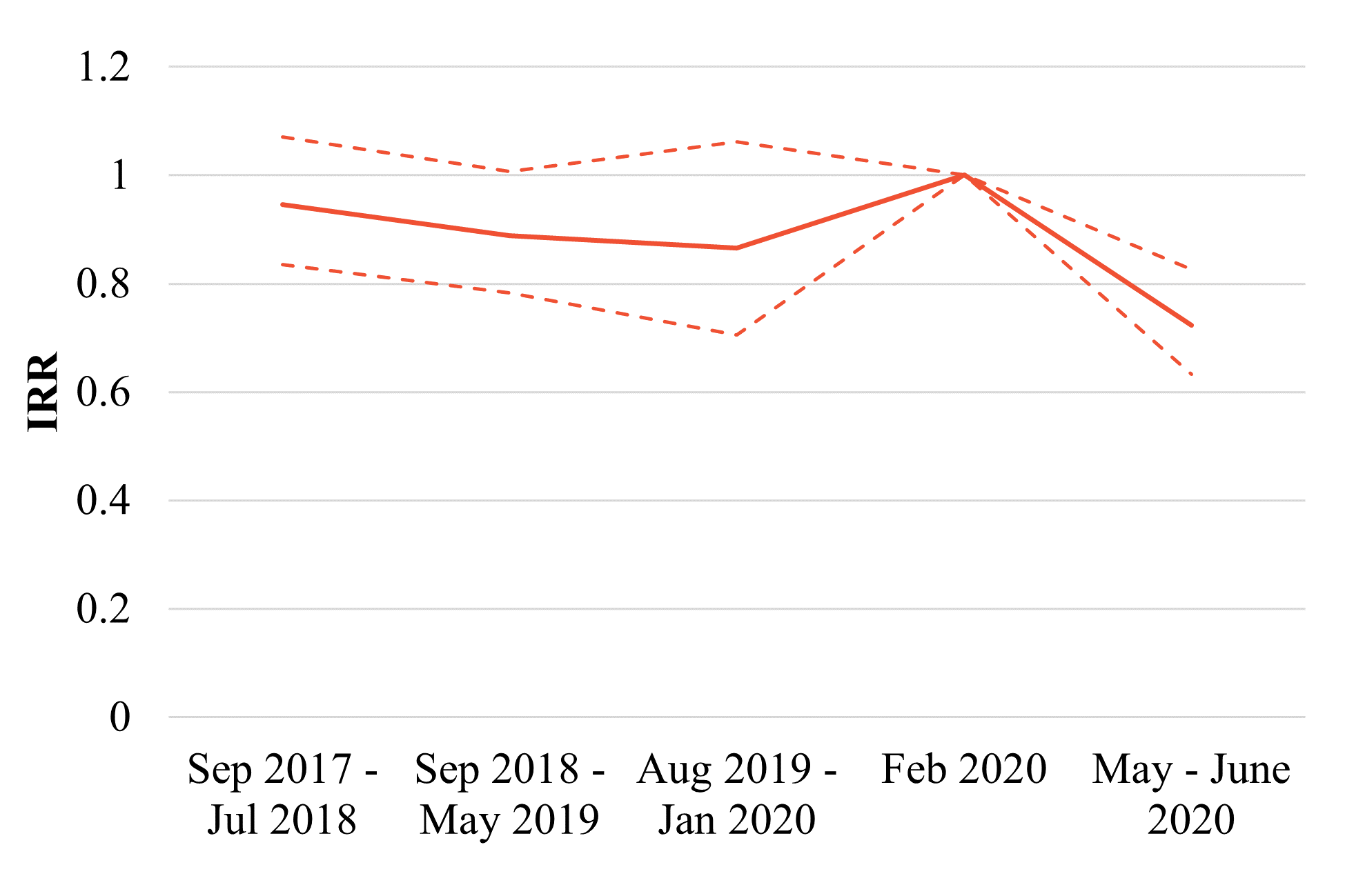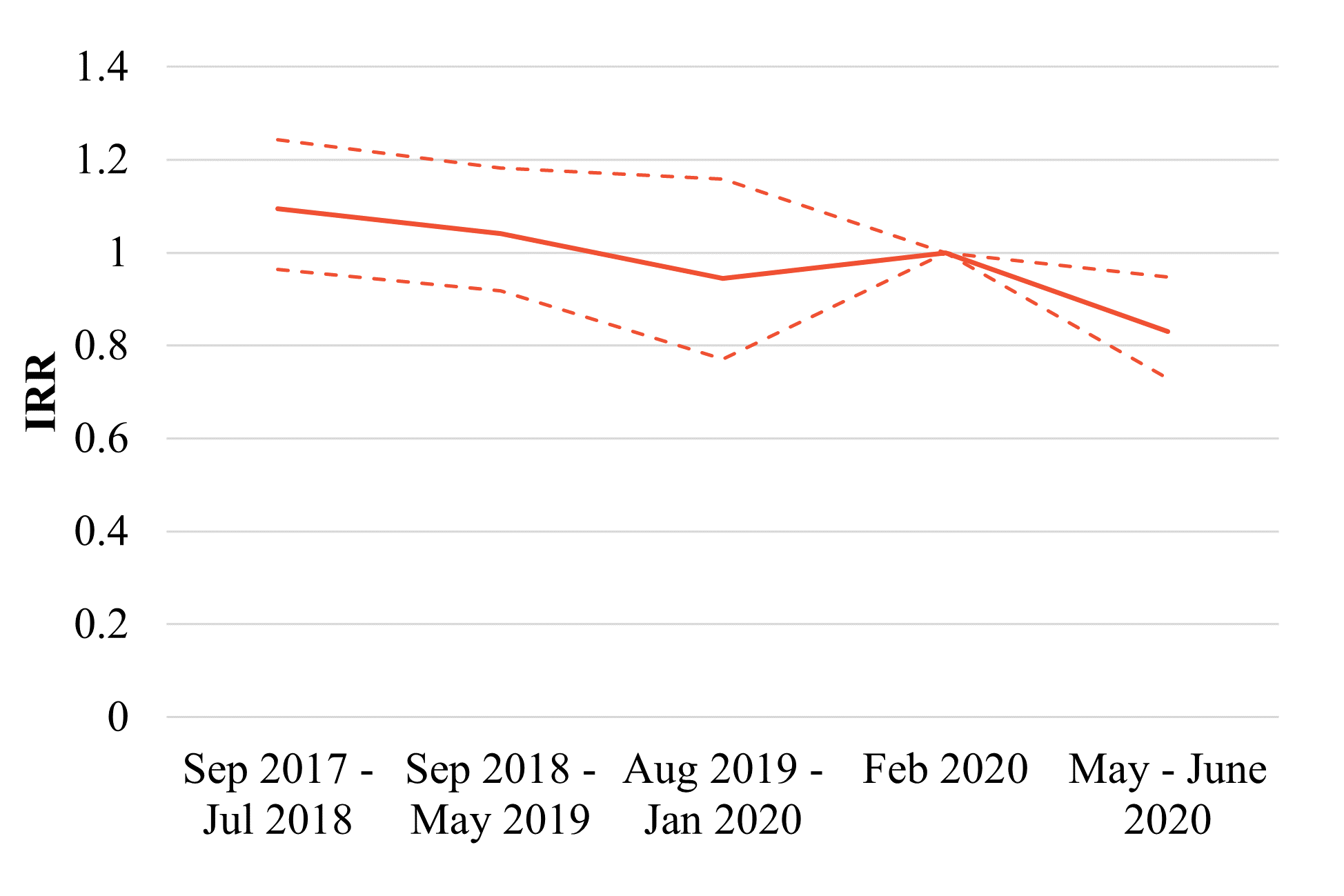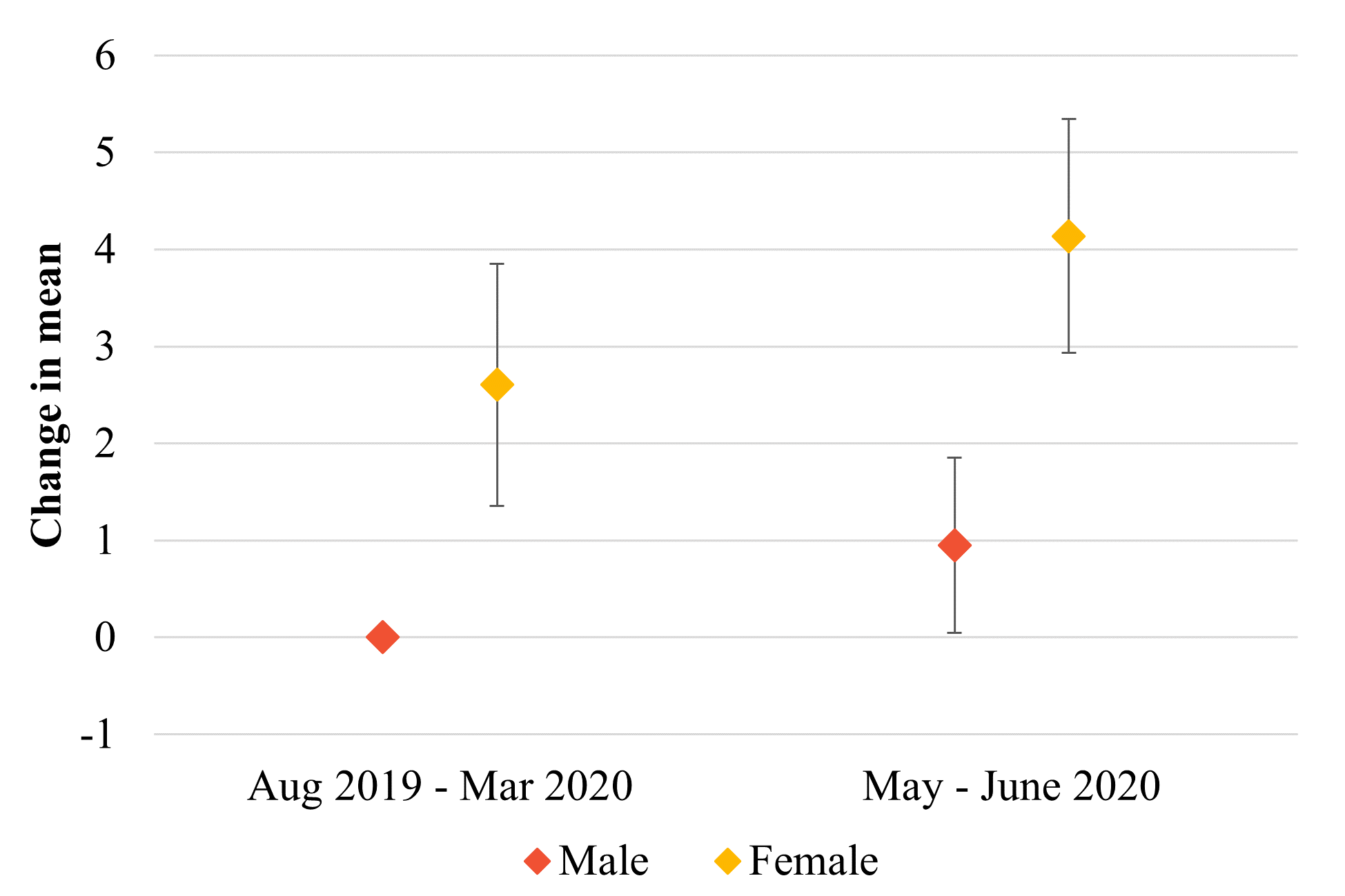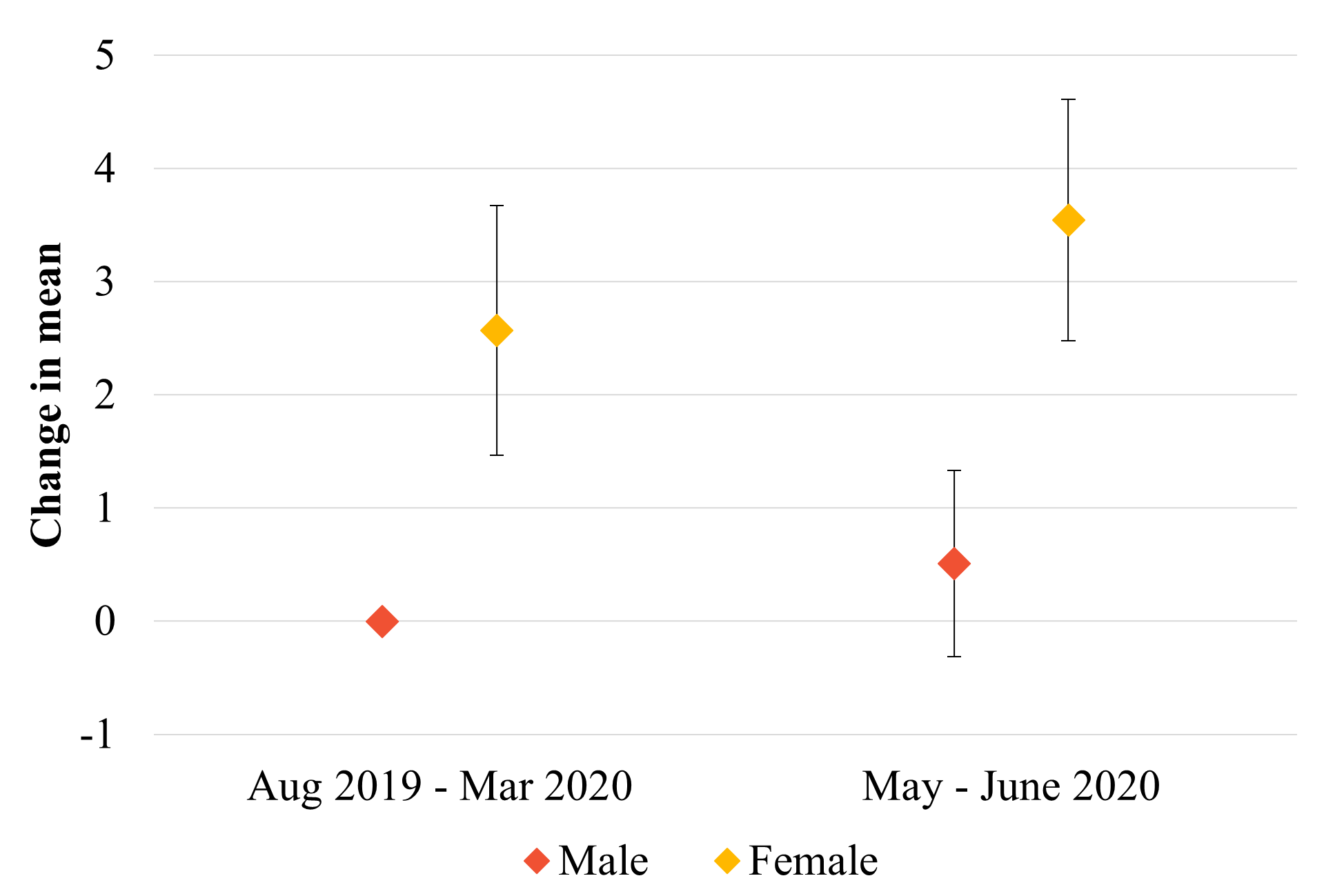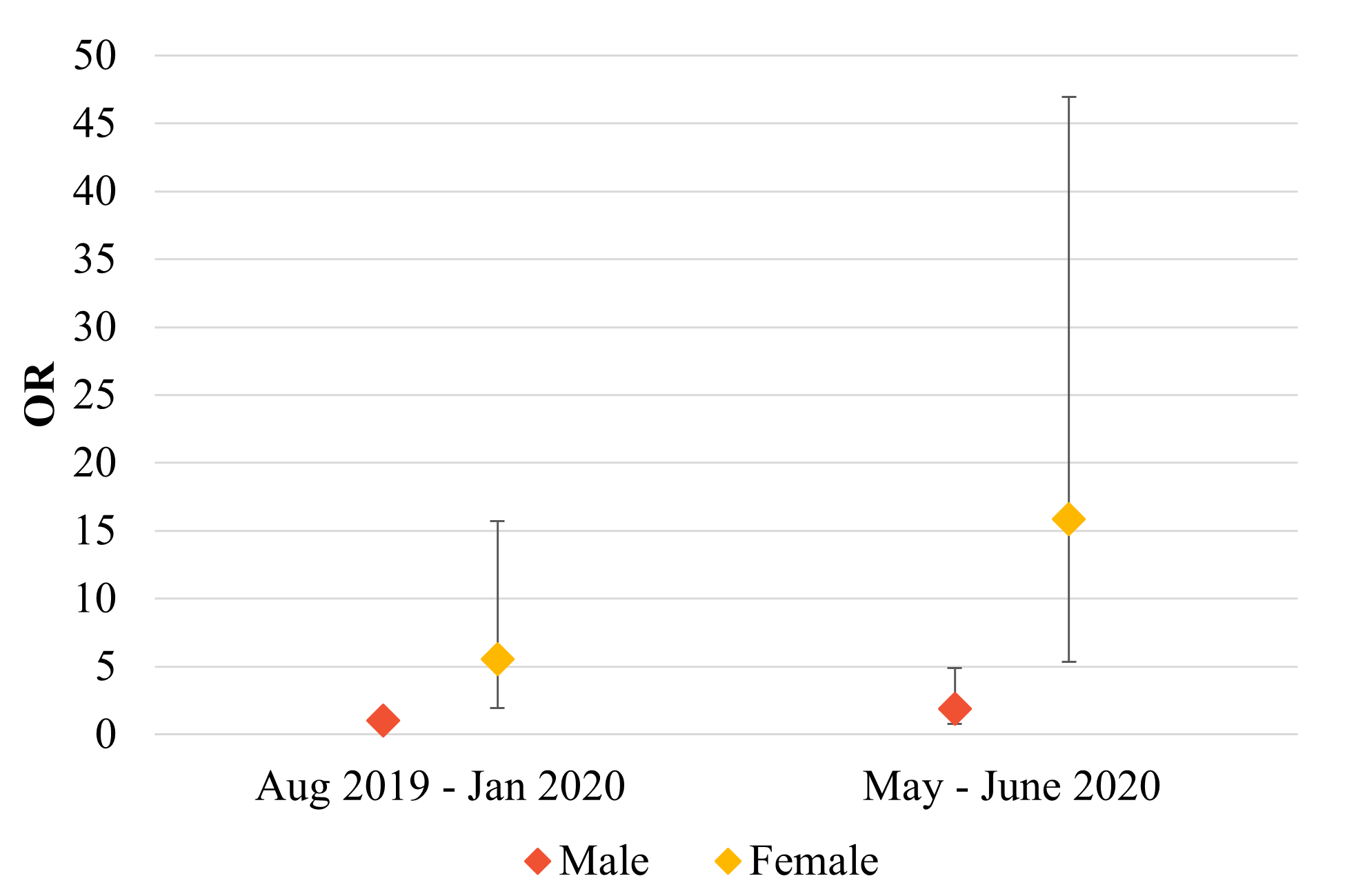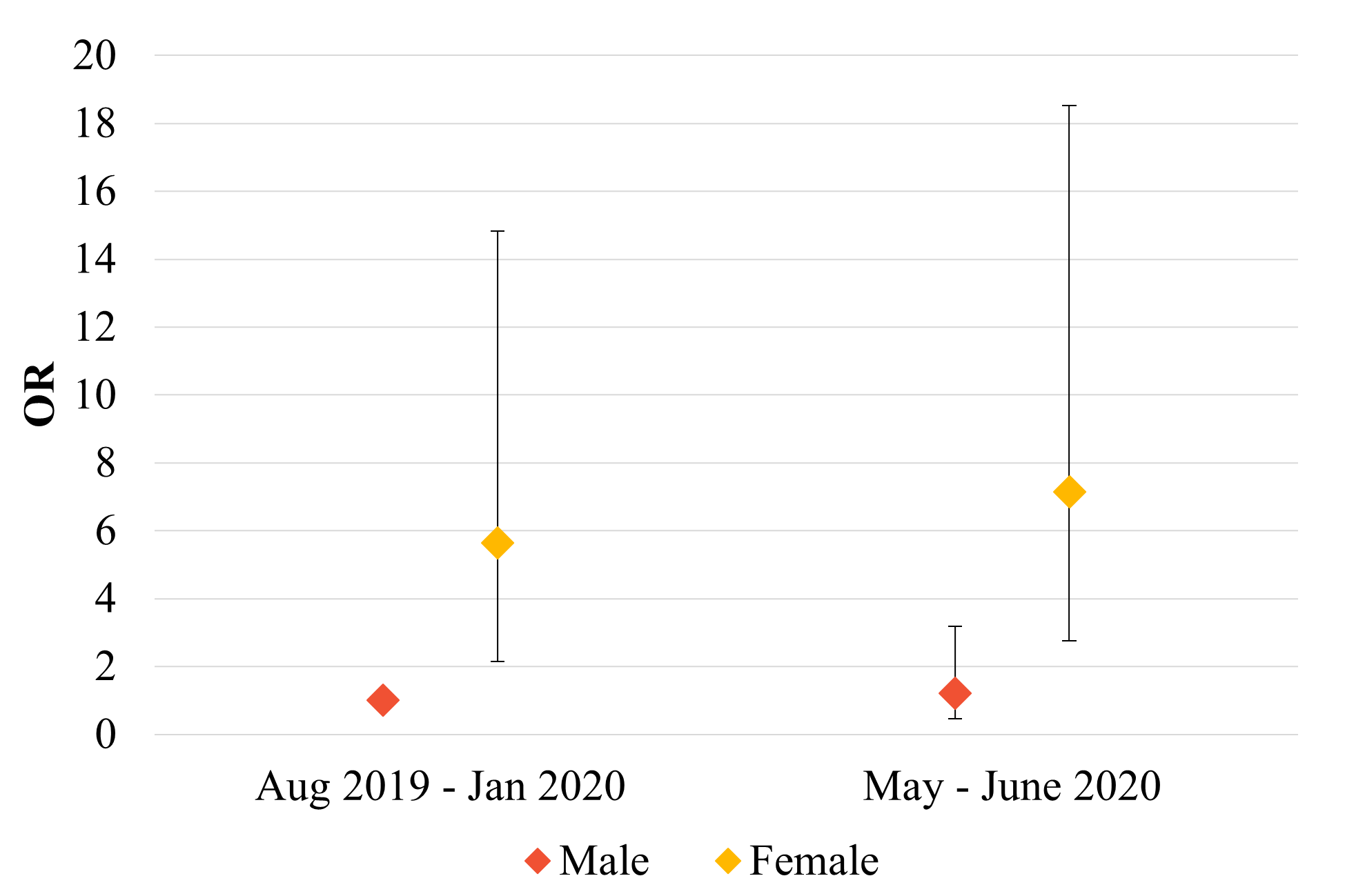
Mental health and alcohol use in young Australians during COVID-19
Philip J Clare
Prevention Research Collaboration

© Philip Clare 2021
1 / 32
Contents
- APSALS Cohort
- Background
- This study
- Results
- Conclusions
2 / 32
1. APSALS Cohort
3 / 32
1. APSALS Cohort
Created by: Laura Vogl and Richard Mattick
CIs and AIs: Raimondo Bruno, Louisa Degenhardt, John Horwood, Delyse Hutchinson, Kypros Kypri, Richard Mattick, Nyanda McBride, Jim McCambridge, Jake Najman, Amy Peacock, Tim Slade, Monika Wadolowski, Alexandra Aiken, Philip Clare, Tim Dobbins
Current/Past NDARC team: Wing See Yuen, Clara de Torres, Emily Upton, Cooper Jackson, Brittany Corkish, Veronica Boland
Funding: ARC, Australian Rotary Health, FARE, NHMRC
4 / 32
1. APSALS Cohort
- Longitudinal project assessing parental and other sources of supply
- Controlling for the known predictors of adolescent drinking
- 1927 adolescent/parent dyads recruited in NSW, TAS, WA in September 2010
- First captured in Grade 7 aged ~13 years
- From 49 schools (government - 39%, independent - 49%, catholic - 12%)
- Adolescent sex - 45% female
- Assessed annually on-line or paper
- Parents surveyed until Wave 5
5 / 32
2. Background
6 / 32
2. Background
- Mixed hypotheses about impact on alcohol
- Possible declines due to restrictions.
- Possible increases due to financial/psychological distress, known risk factors of alcohol consumption
- Concern about potential negative impacts on mental health
- Cross-sectional studies show elevated depression, anxiety and stress amongst young adults during the pandemic
- However, little longitudinal research, and most of it from the USA
7 / 32
3. This study
8 / 32
3. This study
- Extra survey conducted in mid 2020, in addition to the main APSALS study waves.

9 / 32
3. This study
- All participants who had completed APSALS Wave 10 up to April 30 (n=813) and had providewere invited to participate
- n=443 participants completed the COVID survey (54% response rate; 23% of the total sample).
10 / 32
3. This study

11 / 32
3. This study
- Survey included a range of questions from the regular survey, adjusted to ‘past month’ rather than ‘past year’
- Alcohol use
- Alcohol-related harm
- Mental Health
- Use of mental health/addiction services
- Also included questions about their experiences during the pandemic/lockdown
12 / 32
4. Results
13 / 32
4. Results - Sample

14 / 32
4. Results – Experience during restrictions
- There was relatively little concern about the COVID-19 disease itself
- 17% of the sample said they were at least moderately worried about contracting the disease
- This is perhaps unsurprising – at the time of the survey:
- only 6% of the sample had been tested for COVID-19
- only 1 respondent had received a positive COVID-19 test result, and had fully recovered.
15 / 32
4. Results – Experience during restrictions
- Secondary impacts of the pandemic were more common
- 74% reported they had been or were currently in voluntary isolation
- The use of precautions were common

16 / 32
4. Results – Experience during restrictions
- Housing difficulties were relatively rare
- <5% had housing difficulties
- 10% of the sample had moved in with family or their partner
- 20% of the sample reported financial stress

17 / 32
4. Results – Alcohol consumption
|
Frequency of consumption
|
Typical quantity consumed
|
18 / 32
4. Results – Alcohol consumption
|
Binge drinking
|
Overall consumption
|
19 / 32
4. Results – Alcohol consumption
Change in drinking context
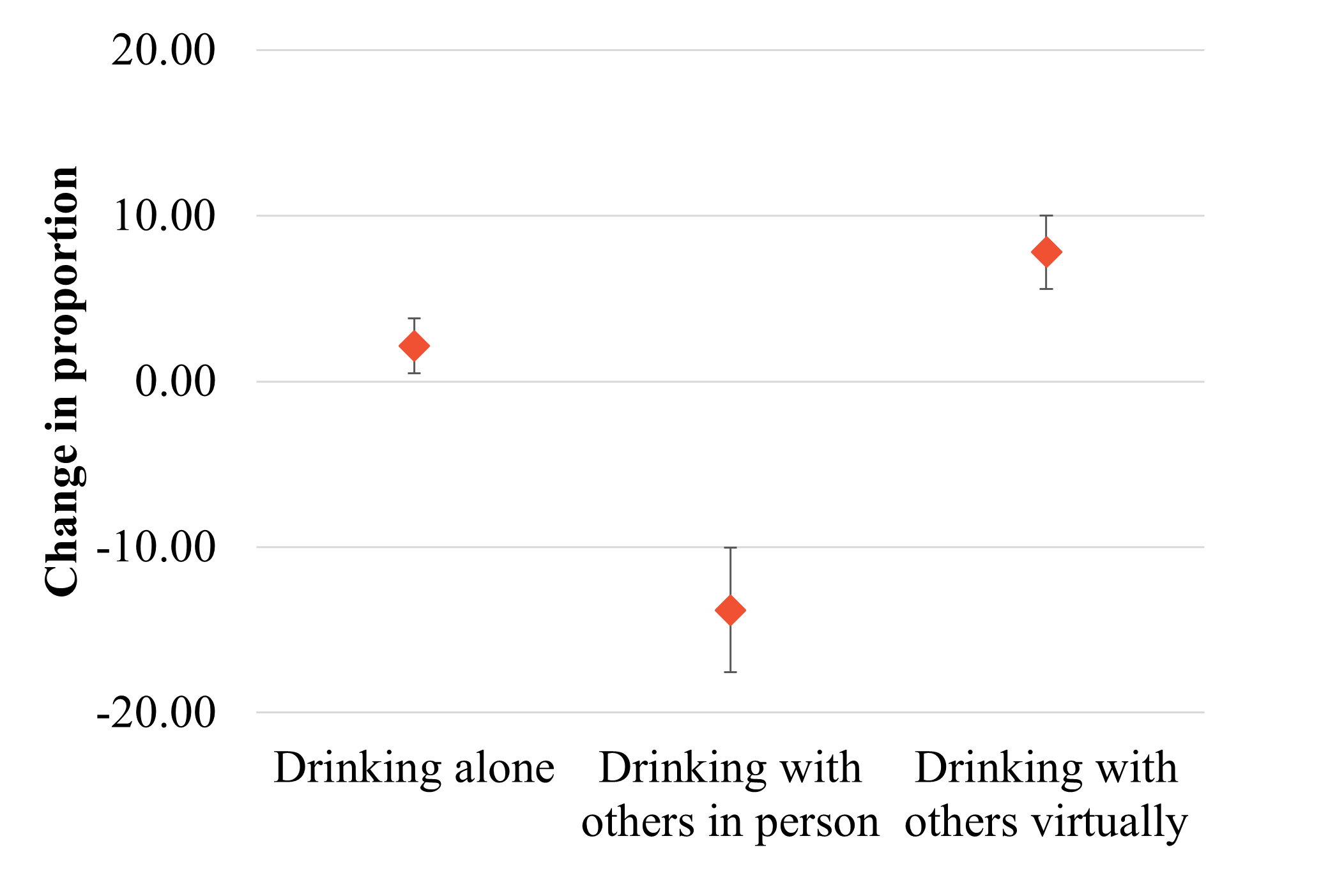
20 / 32
4. Results – Alcohol-related harms
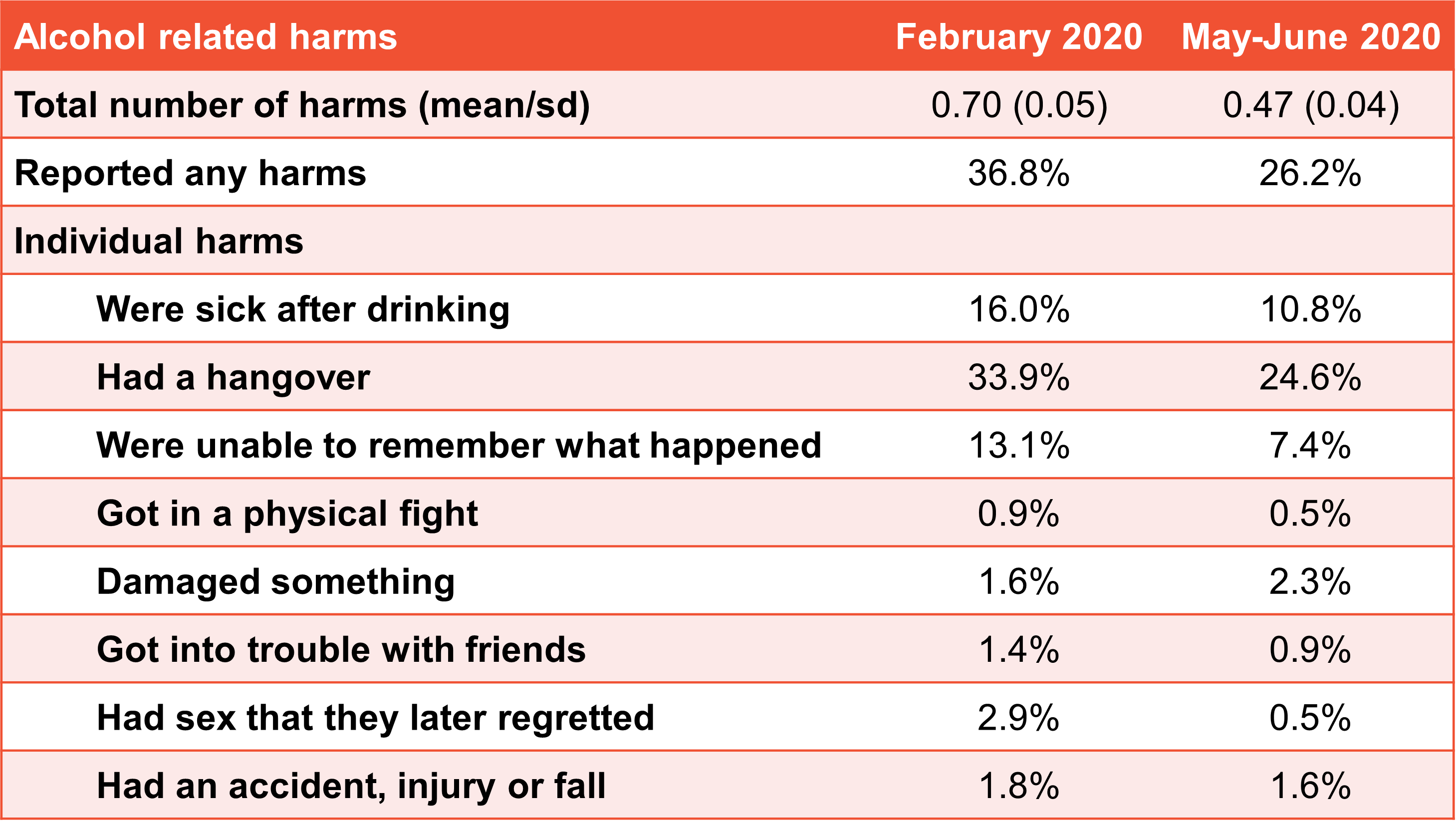
21 / 32
4. Results – Self-reported impact of COVID-19
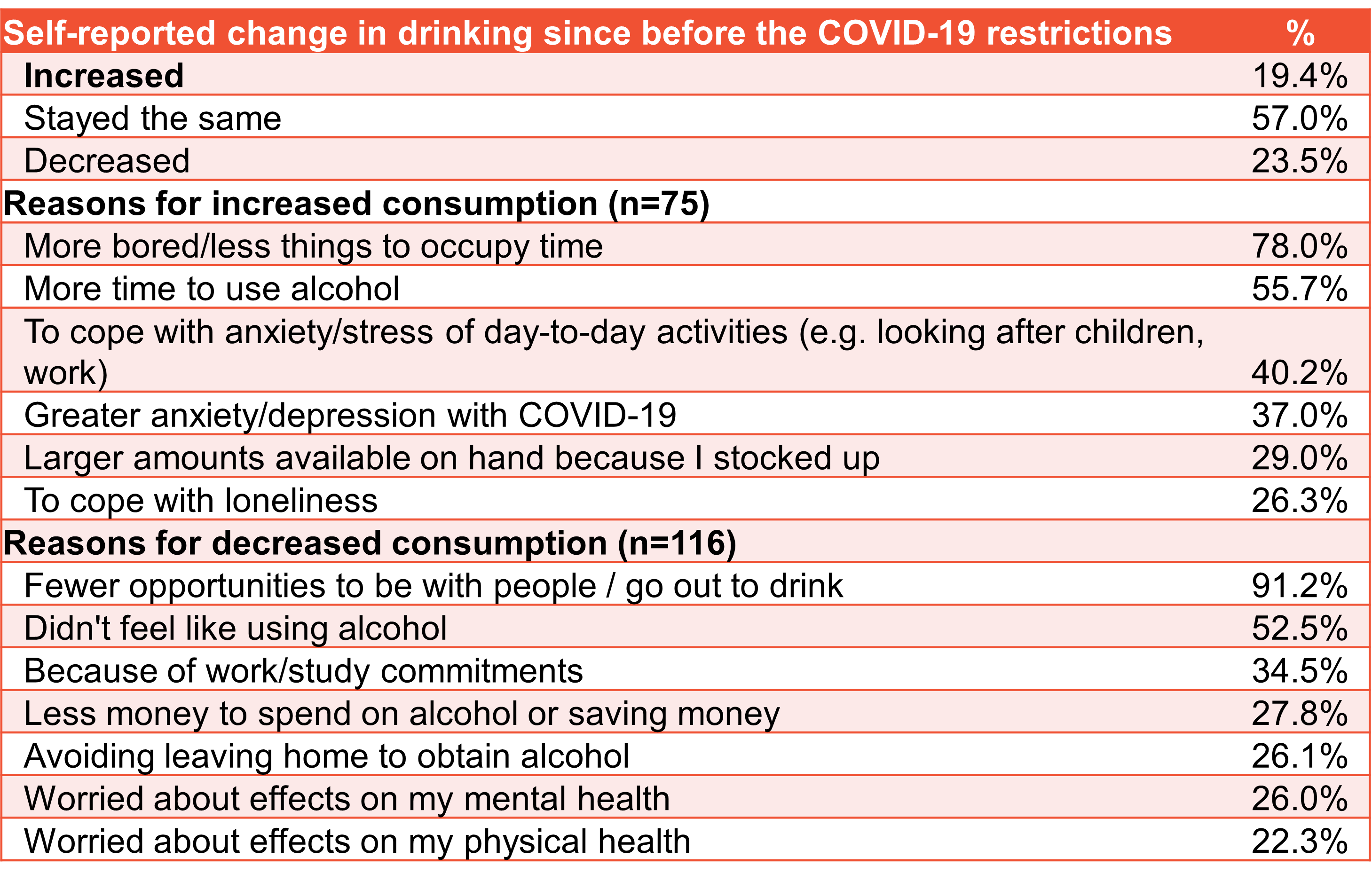
22 / 32
4. Results – Mental health
|
PHQ-9 Score
|
GAD-7 Score
|
23 / 32
4. Results – Mental health
|
Likely depressive disorder (PHQ-9)
|
Likely GAD (GAD-7)
|
24 / 32
4. Results – Mental health
Help seeking for mental health
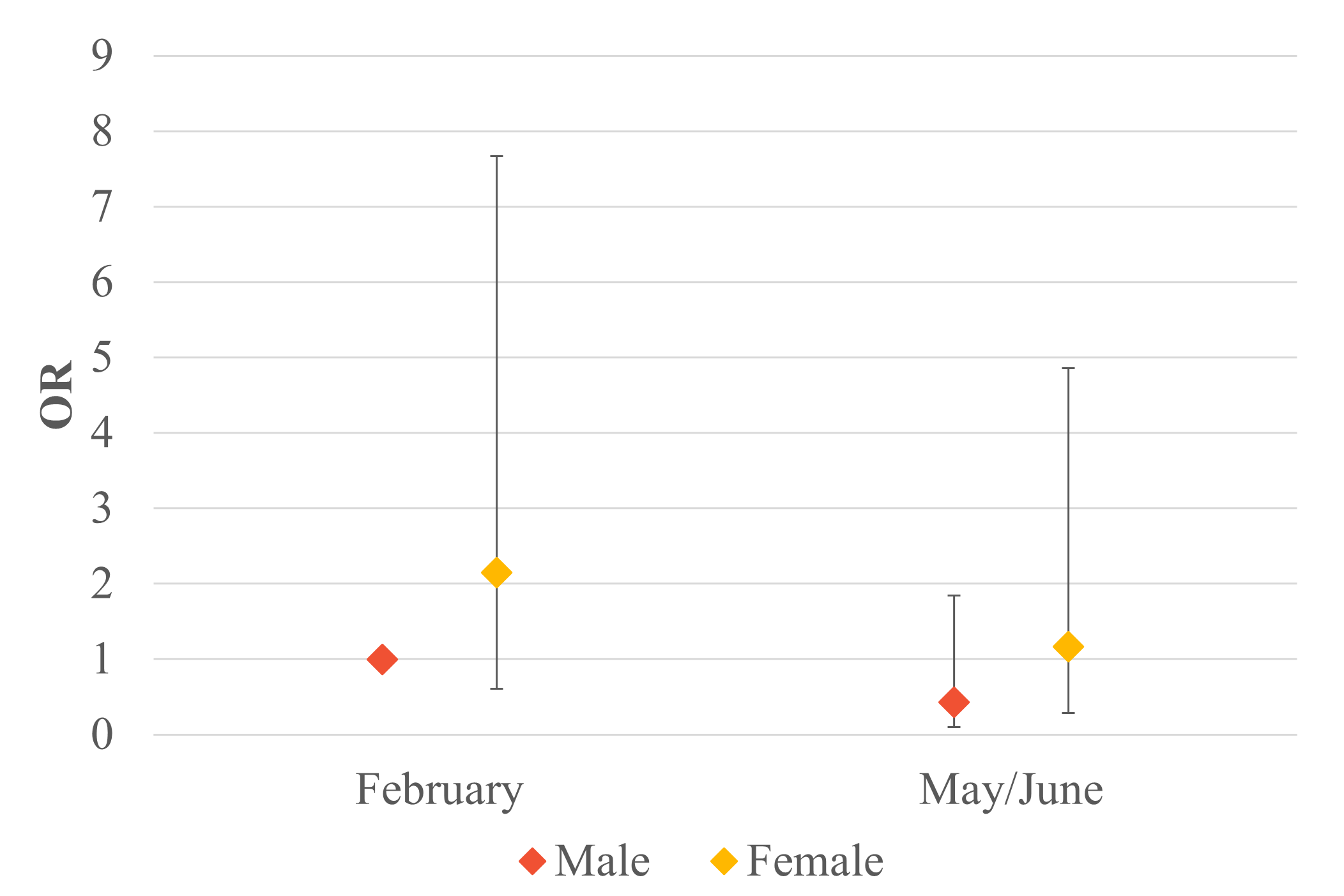
25 / 32
4. Results – Self-help behaviours
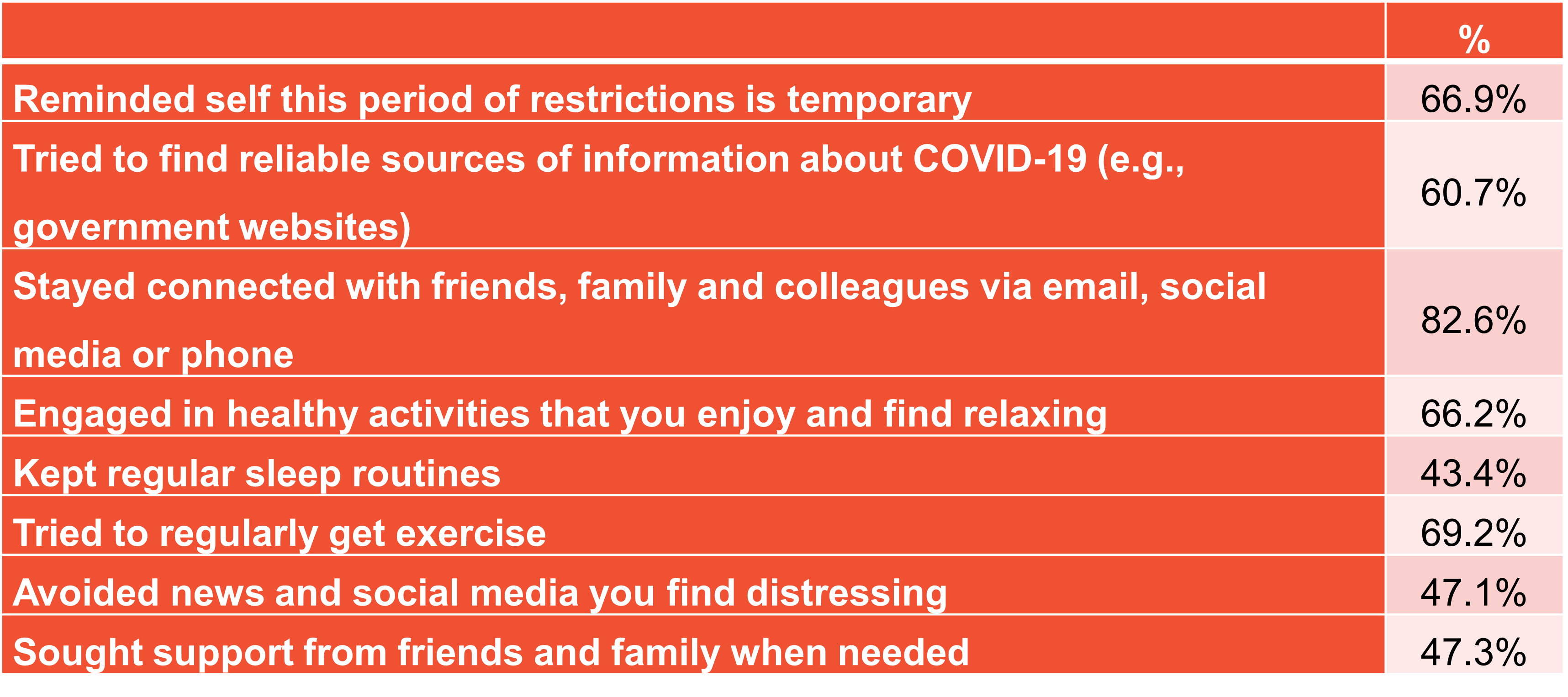
26 / 32
5. Conclusions
27 / 32
5. Conclusions
- Alcohol consumption declined, continuing a trend that began before the pandemic
- This appeared driven by quantity, with no change in frequency of alcohol consumption, but declines in typical quantity consumed, and binge drinking
- Unsurprisingly, there was a sharp decline in drinking with others in person, but this was large matched by increases in drinking with others virtually and drinking alone
- There was a decline in the rate of alcohol-related harms
- These may be related, as drinking at home is likely to reduce the risk of acute harms such as traffic accidents and fighting
28 / 32
5. Conclusions
- Increases in depression and anxiety symptoms
- Changes were less severe than in some other countries
- Possibly due to the relatively low impact of COVID-19 in Australia
- No change in help seeking
- While the Australian Government introduced initiatives to improve access to mental health support, there may have been a lag in uptake, and barriers such as cost may have remained
- Results for both alcohol and mental health were consistent by gender
- Although women generally showed higher rates of depression/anxiety, there was no gender difference in change due to the restrictions
29 / 32
5. Strengths and Weaknesses
- One of the few studies investigating impact of COVID-19 prospectively
- Self-selected sample > but similar to population
- Only covered relatively ‘early’ stages of the pandemic – May-June 2020
- May not generalize beyond the Australian context
- Mental health was self-report not clinical interview
30 / 32
References
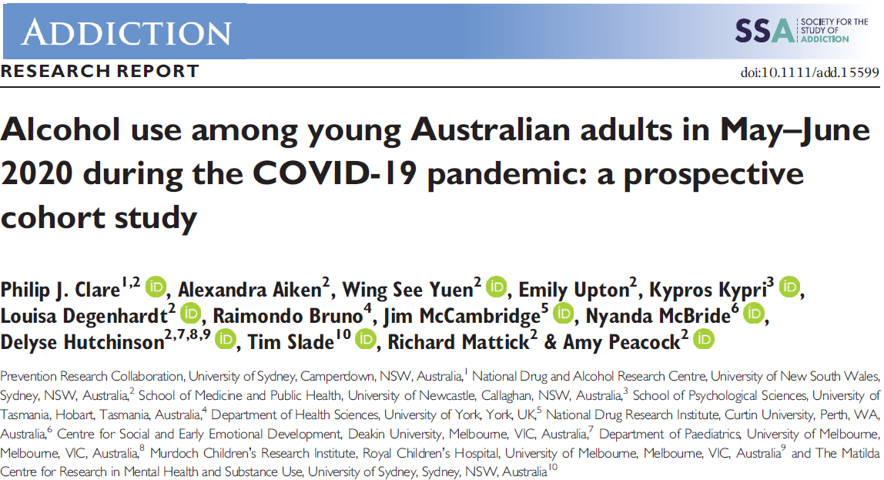
31 / 32
References
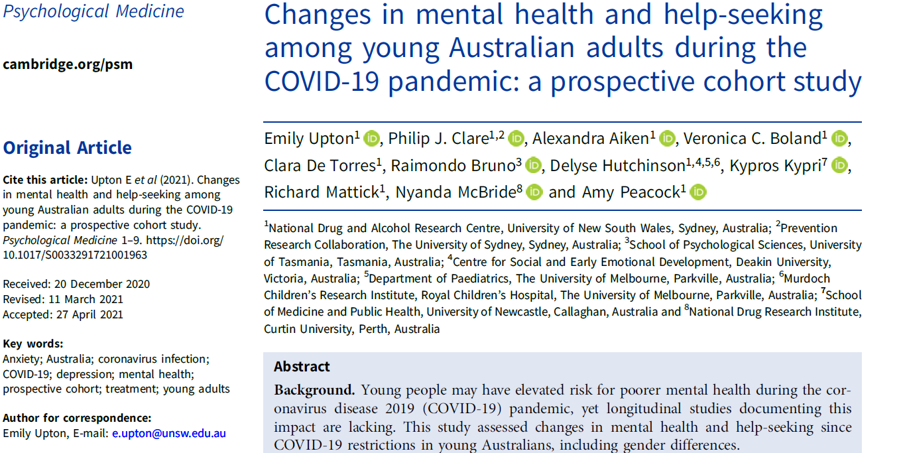
32 / 32


